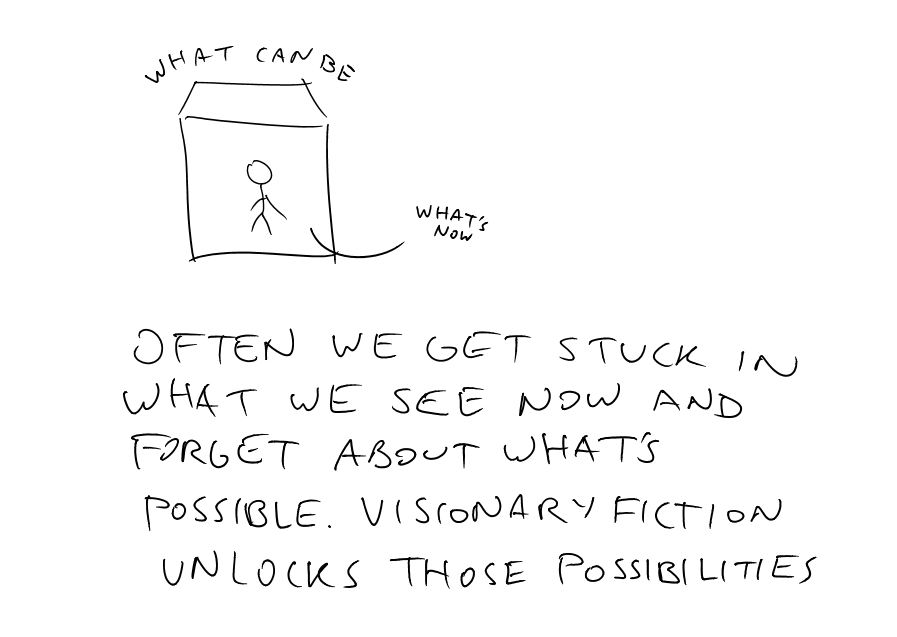Blog Cover Post
- savannay
- Jun 1, 2016
- 4 min read
This is the blog I kept while taking an Honors class about social hierarchies and science fiction. In this class we looked at social issues through the lens of science fiction. Here are some key concepts we explored.
We first looked at intersectionality. The idea of intersectionality is that people facing oppression from multiple sources suffer from more than the sum of the parts. Facing different circumstances leads to different experiences, and those who are oppressed in multiple ways have very different experiences with each oppression than those who only suffer from one.

A key distinction to remember when considering social changes is the difference between equality and equity. Here is a great visual one of my classmates found for our discussion of equality and equity.

We often falsely believe that we know what it the best for others without fully understanding their unique needs and situations (which we usually are never able to do). We have to learn to solve the needs of what others want, not what we think they want.
I first found myself getting very excited about this class when we started talking about feminism. I’ve always been a bit of a feminist, but I did not feel like I understood the subject well enough to have strong, well-backed feelings about it. After reading up on some feminist theory for this class I got a more solid understanding. Nobody has a solid, conclusive definition of feminism, but here is my working definition: “Allowing individuals to behave how they want to behave regardless of social pressures, stereotypes, and gender roles and norms.” Ever since I was young I had heard about the feminist man-hater groups (which actually make up a minority of feminist groups) and was concerned about how feminism affected men. Luckily, in this class we got to read some feminist theory that also addresses men and demystifies feminism for the uninformed. For those who are curious, I highly recommend reading bell hooks' Feminism if for Everybody. We read the excerpts of this book: the intro and the chapter on masculinity. These readings lead to enlightening conversations with friends.
Our exploration of "otherness" was particularly helpful in tying in with my other Honors class this quarter, a class about AI. Through that class I decided to center my final project for this class around a robot. Both of my Honors classes, as well as my biology class, have helped me really try to understand and articulate the social issues that arise when we have human-like but not-quite human beings in our lives.
Partway through the quarter we took a privilege survey. This survey was very enlightening. Privilege is a difficult term to define, because its very nature is that it is nearly unnoticeable. Not knowing you are privileged basically shows that you are privileged. That is what the survey did for me. There were so many things I had not thought of—all because I did not HAVE to think about them. That is what privilege is, not needing to worry about something because it does not affect you. The inherent natures of privilege and suffering are counterproductive because those who suffer are forced to always be reminded of their suffering whereas the privileged are rarely reminded of their privilege.

Another issue we explored was class difference. There is a traditional view of poverty, called residual poverty, that says that poverty is because people do not work hard enough or somehow did something to deserve to be in that state. Relational poverty, on the other hand, shifts the focus to looking at what the societal structure may have done to be responsible for poverty. We read a short story by Ursula K. Le Guin called “The Ones Who Walk Away from Omelas”, which is a powerful way to explore the question of whether suffering is necessary in order to have wealth.

The unit that connected everything for me was the unit on visionary fiction and science fiction as social justice. This is the topic of my blog post #5. We read a very engaging and eye-opening article by Walidah Imarisha, one of the creators of Octavia’s Brood: Science Fiction Stories from Social Justice Movements.
When we imagine better futures we are engaging in science fiction thought because we are imagining something that does not yet exist. This is why science fiction has become such a valuable tool for creating social change. If we do not imagine the change in the first place, how are we supposed to work towards it?

In the Honors program we are encouraged to be aware of and care about social issues. I think this class has contributed to my understanding of the nature of social issues and made me more aware of how problems are everywhere, and my privilege is the reason why I don't always see them. More importantly though, this class has taught me a liberating and empowering way to look at problems and begin to tackle them.

This class has overall made me a more aware and informed member of society. It has also given me the tools to initiate the first step in fixing the world’s social problems. Now that I have science fiction I can use it to imagine all the possible better worlds we can work towards. Who knows what I or the millions of other writers in the world will collectively dream up? With our imaginations in collaboration we can make people’s lives better, one story at a time.





Comments